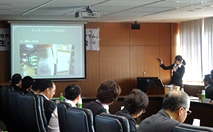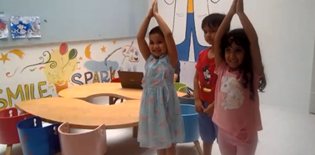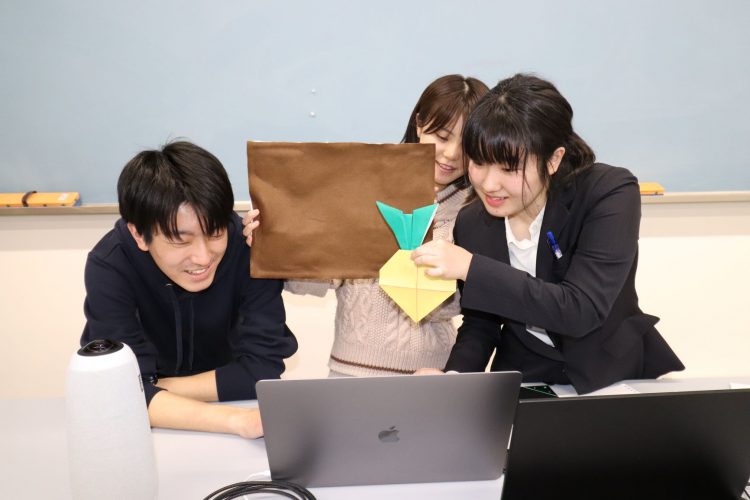International Cooperation Activities
Ehime University is systematically working to advance and internationalize education and research in all faculties and graduate schools, and is conducting education and research aimed at contributing to society in a variety of fields, both in the sciences and humanities. Taking advantage of these characteristics, Ehime University is actively promoting international collaboration and international contributions while further advancing the sophistication of education and research, and at the same time, collaborating with the local community and contributing to society.
International collaboration in the field of world-class research
We have three world-class research centers (Center for Coastal Environmental Sciences, Center for Deep Earth Dynamics Research, and Center for Proteoscience), and we are building an international center of education and research through world-class research, producing outstanding human resources, and contributing to the international community through initiatives that return the results of our academic research. We are also making international contributions and collaborating internationally by returning the results of our academic research to the world.
Center for Coastal Environmental Sciences
Our research focuses on the environment of coastal waters, global pollution by toxic chemicals, and the mechanisms of marine life systems and long-term changes in these systems.
Geodynamics Research Center (GRC)
Based on its international, innovative, and interdisciplinary nature, GRC promotes research and education using international leading-level ultrahigh-pressure experiments and numerical simulations. Currently, the GRC is promoting three priority research themes: “Dynamic Earth Science” to explore the dynamic activities of the Earth’s interior, “Deep Planetary Science” to explore the interior of the solar system and even exoplanets, and “Ultrahigh Pressure Materials Science” utilizing the world-leading ultrahigh pressure experiments and numerical simulation techniques at the GRC.
Proteoscience Center
- Research Grant from the Bill & Melinda Gates Foundation
- Designated as a strategic item for innovative technology in Japan by the Council for Science and Technology Policy
Based on the unique technology of cell-free protein synthesis, which we were the first in the world to establish, we are conducting life science research and applied research to utilize the excellent biological functions that have been refined over the past 4 billion years for the creation of new industries.
We are driving global protein research, particularly in response to infectious diseases and in the search for malaria vaccine candidates.
Research Center for Ancient Industrial Archaeology in Asia
- The only foreign institution to conduct a full-scale survey of Chinese steelmaking sites
We will conduct archaeological and natural science analysis to elucidate the specifics of iron (iron-making, casting, and blacksmithing) technology in East Asia, and clarify the impact of iron on social change in various regions of Asia. We will promote research that integrates the humanities and sciences.
Research Center for Space and Cosmic Evolution (RCSCE)
The center promotes international contributions by conducting comprehensive research focusing on the “evolution of the universe,” and by conducting cutting-edge research and training researchers in the field of space exploration.
International Contribution through Education (Research)
In addition to promoting the bold internationalization of education and producing outstanding human resources as a center for international education and research, the university is also working to build a system to support students after they have completed their studies in Japan and to promote cooperation in higher education, especially with Asian countries. The university aims to play a role as one of the key universities for international student education.
Special Programs, etc.,” a distinctive approach to international student education in graduate programs
The purpose of this program is to train researchers in disaster science, environmental science, earth and space science, life science, and agricultural science in Asian and African countries, etc.
Graduate School of Science and Engineering, Asian Disaster Reduction Special Program
●Graduate School of Science and Engineering, Doctoral Program in Advanced Studies
●Graduate School of Agricultural Science, Special Course for Asia, Africa and the Pacific Rim
Special scholarship program for graduate school students (travel expenses to Japan and back home, living expense support)
Implementation of international student support programs aimed at developing global human resources
We promote the acceptance and success of excellent international students and provide consistent support from specialized education to job placement assistance.
We contribute to the development of highly specialized human resources who will serve as a bridge between Japan and Asia.
Overseas Development of Japanese-Style Education: Development and Practice of STEAM Early Childhood Education Curriculum through Industry-Academia Collaboration
Ehime University and Human Holdings Corporation have begun joint research on STEAM (Science, Technology, Engineering, Art and Mathematics) education for children in Indonesian nursery schools.
Education system construction
Develop curriculum for world-class undergraduate and graduate education, and establish a center for ESD support in Ehime University (Asia and Africa).
Establishment of double degree programs with universities in Indonesia and Taiwan with which we have exchange agreements
Acceptance of JICA long-term trainees and JICA short-term training programs
Focused international collaboration with base countries
Based on Ehime University’s past international exchange activities, we are promoting focused international contributions and international cooperation with a particular focus on specific countries (Indonesia, Nepal, Mozambique, and the Philippines). These activities are being developed as industry-government-academia partnerships in cooperation with governments and educational institutions in each country, as well as with industry and civic organizations in Ehime Prefecture.
Indonesia
- Academic exchange agreements concluded with 16 Indonesian universities and institutes
- Establishment of Ehime University Overseas Satellite Office in Indonesia
- Development of tropical forest research and environmental disaster prevention research (e.g., University of Hasanuddin and University of Gorontalo) as a center of higher education in Eastern Indonesia
- SUIJI (Six-University Initiative Japan Indonesia) consortium agreement on tropical agriculture signed.
- Implementation of SUIJI domestic and international service-learning programs
- SUIJI Joint Program Master (SUIJI-JP-Ms) Memorandum of Understanding (MOU) signed.
- SUIJI Joint Program Doctor (SUIJI-JP-Dc) Memorandum of Understanding (MOU) signed
- Academic exchange with the Government of South Sulawesi Province, Republic of Indonesia
- Overseas fieldwork and internship by the Faculty of Social Co-creation
- Full support for Ehime-Indonesia Friendship Association
Nepal
- Academic exchange agreements signed with four universities and institutes in Nepal (Purvanchal University, Tribhuvan University Institute of Technology, Nepal Engineering College, and Earthquake Engineering Research Institute of Nepal)
- Establishment of Ehime University Overseas Satellite Office Nepal
- Support for research and exchange in the area of integrated disaster prevention research with partner universities
- The President of Ehime University received a plaque from the Nepalese government as a token of appreciation for the university’s contributions to Nepal since 2001 (Commendation Ceremony held on November 23, 2008).
Mozambique
- Academic exchange agreement signed with Lurio University and Maputo University of Education
- Establishment of Ehime University Overseas Satellite Office in Mozambique
- Development of Education for Sustainable Development (ESD) (Establishment of Environmental ESD Leadership Training Curriculum)
- Academic exchange agreement concluded with Lulio University, Republic of Mozambique; Ehime University, National University Corporation, Japan; Ministry of Science, Technology, Higher Education and Vocational Education, Republic of Mozambique; and Japan International Cooperation Agency (JICA).
Philippines
- Academic exchange agreements signed with four Philippine universities
- Establishment of Ehime University Overseas Satellite Office in the Philippines
- Implemented an international educational training program in collaboration with the School of Education, University of the Philippines Diliman (“Philippine Educational Training Program to Develop Human Resources with International Perspectives”).
- Conducting joint research with De La Salle University (“Development of biological control technology using natural enemies to control agricultural pests and bacterial technology to control dengue virus infection in mosquitoes”)




